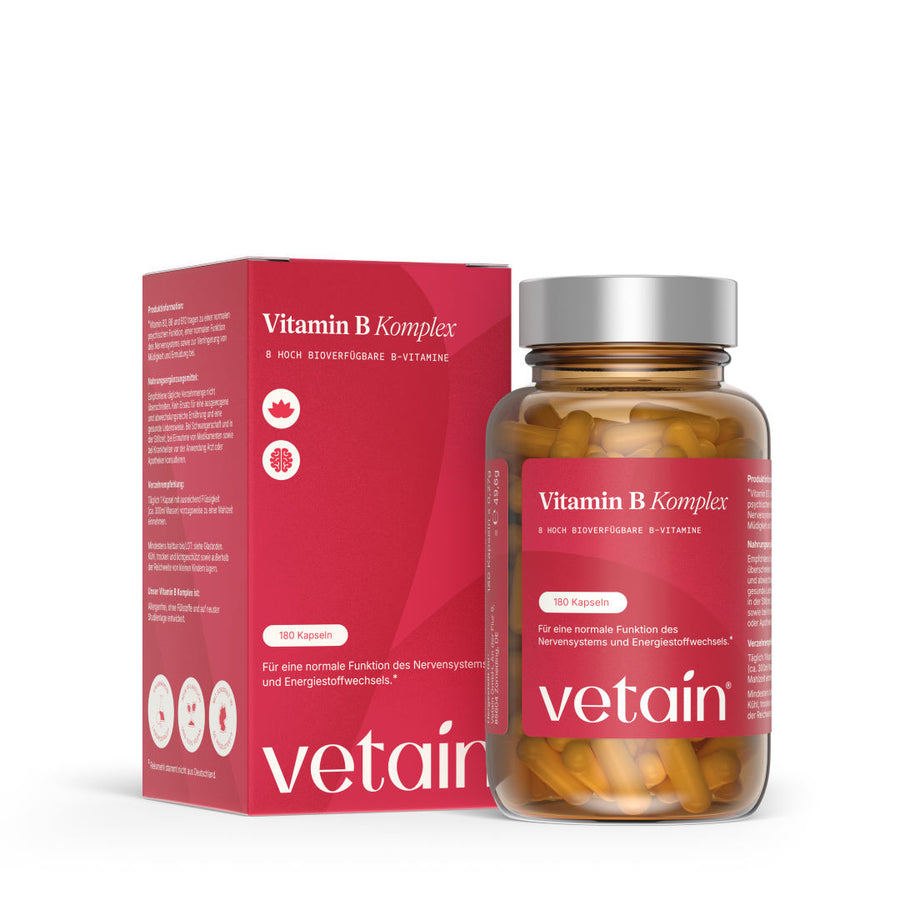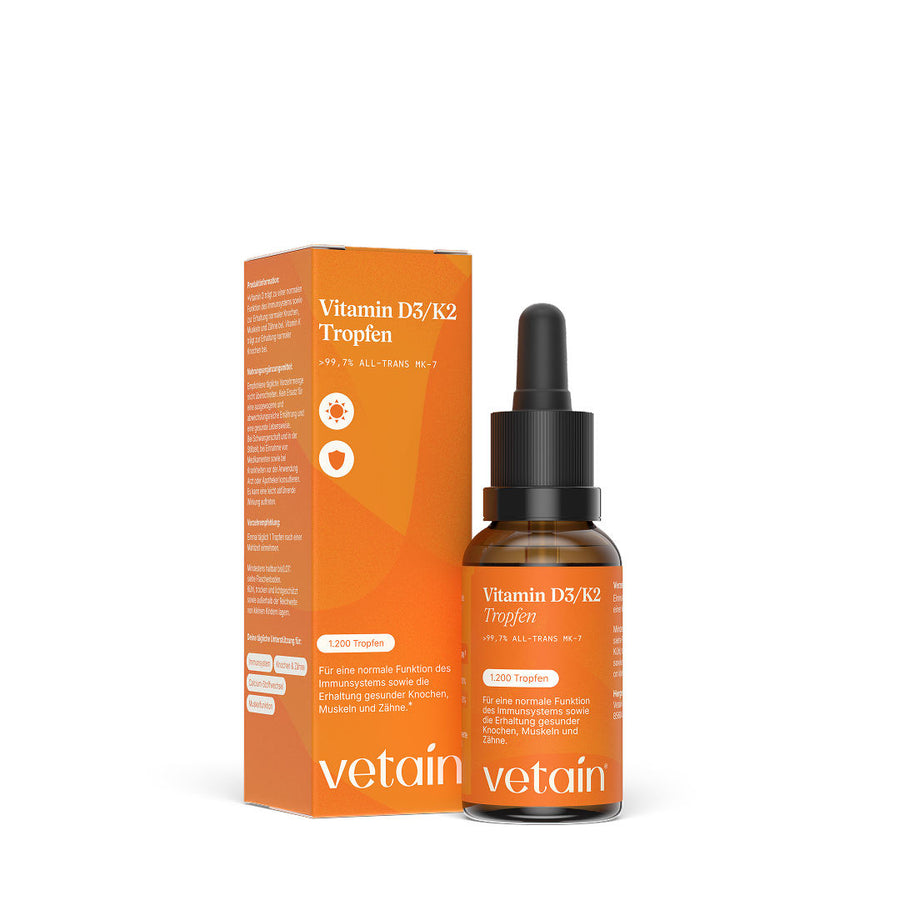The vitamins seem to have decided to go through all the letters of the alphabet – so it's only a matter of time before Vitamin Z hits the market. It can be dizzying, and you might wonder: What do I really need? Today, however, we won't talk about the entire vitamin alphabet, but just one letter: C. Specifically: Vitamin C infusions. What is it? What does it do? How important is Vitamin C? What happens with a deficiency? What are the best sources – and is the Vitamin C infusion one of them? Exciting questions, and we’ll answer them all! Stay tuned until the end, and we’ll also give you an overview of how much it could cost if you want to try it.
By the way, dizziness and headaches: These aren’t just side effects of an endless vitamin alphabet but could already be signs of a Vitamin C deficiency! However, the best way to know which vitamins you’re actually missing is through a blood test. Let’s move on to the effects and side effects of Vitamin C.
Here’s What the Vitamin C Infusion Helps With: Effects and Side Effects
Just briefly on the term itself: A Vitamin C infusion is a method of delivering high-dose Vitamin C directly into the bloodstream. Unlike taking it through food or supplements, the vitamin bypasses the digestive tract and enters the body immediately. It is often used in cases of exhaustion, a weakened immune system, or inflammatory conditions. It is also increasingly used in alternative medicine.
Vitamin C itself is involved in numerous important processes in the body. One of its most well-known properties is its positive effect on the immune system. It helps strengthen the body's defenses and protects the cells from oxidative stress. It is also essential for collagen production, which is important for the skin, joints, and connective tissues. Additionally, it improves the absorption of iron from plant-based foods, which is particularly important in vegetarian and vegan diets. You’ve probably also noticed that many other vitamins and supplements are best taken with Vitamin C. This is precisely because Vitamin C is involved in so many processes in the body and helps the rest of the vitamin alphabet function as a sort of crutch.
Another area of use is cellular protection: Vitamin C acts as an antioxidant and neutralizes free radicals, which can be caused by stress or environmental toxins. All these functions show that Vitamin C is much more than just an "immune booster."
But What About the Infusion – Is It Useful for Everyone? How Does It Differ from Oral Intake?
A major advantage of high-dose Vitamin C infusions is their quick and effective absorption. While orally taken Vitamin C is only partially utilized by the body, an infusion goes straight into the bloodstream. This means the active ingredient doesn’t have to pass through the digestive tract before reaching where it's needed. The effects of the Vitamin C infusion are especially evident in boosting the immune system, improving wound healing, and supporting chronic conditions. Some people also report a noticeable increase in energy and a reduction in inflammation.
However, there are also potential risks. A dose that's too high can cause side effects like:
-
Nausea
-
Diarrhea
-
Mild gastrointestinal discomfort
-
Headaches
-
Irritation at the injection site
Additionally, some sensitive individuals may experience dizziness or slight discomfort. Rarely, there have been reports of temporary sensations of heat or redness of the skin after the infusion. For individuals with kidney problems or a tendency to develop kidney stones, caution is advised, as excessive intake of Vitamin C through infusions or other forms may increase the risk of oxalate stones. Very high doses can also lead to an imbalance in mineral levels.
The Initial Worsening of Symptoms
Another topic is the so-called "initial worsening" after a Vitamin C infusion. Some people report a temporary intensification of symptoms after the first infusion. This may be because the body needs time to adjust to the high dose of Vitamin C. In most cases, these reactions subside quickly.
A high-dose Vitamin C infusion should always be discussed with a doctor. If you're unsure or already suffering from chronic conditions, it's best to consult a professional beforehand to rule out potential risks.
Fatigue & Co.: Vitamin C Deficiency and the Need for Vitamin C
A Vitamin C deficiency can lead to various health issues. Early symptoms are often fatigue, increased susceptibility to infections, and poor wound healing. A severe deficiency can even lead to serious diseases such as scurvy. So, how much Vitamin C do we actually need daily? The German Nutrition Society (DGE) recommends between 95 and 110 mg per day for adults. However, in certain situations, such as stress, infections, or smoking, the need may be significantly higher.
Since Vitamin C is also important for other processes, a Vitamin C deficiency can lead to further deficiencies – collagen cannot be formed as well, iron absorption becomes less efficient, etc.
How Often Should You Get a Vitamin C Infusion?
How often you should get an infusion depends on various factors. For acute infections or high stress, weekly infusions may be helpful, while for long-term use, monthly intervals may be sufficient. It’s generally recommended to have a personalized discussion with your doctor. For example, people who regularly suffer from exhaustion or immune weakness may benefit from a Vitamin C infusion for fatigue. But shh... sometimes we also need to focus on our sleep hygiene. Good sleep shouldn’t be underestimated!
Usually, an infusion isn’t necessary – standard intake through food already helps the body a lot. However, it can help prevent a deficiency and can compensate for smaller deficits. If you have a severe deficiency that you want to resolve immediately, a Vitamin C infusion could be a useful measure.
The Cost of the Vitamin C Infusion
As promised, let’s talk about the financial side of the infusion. As you can imagine, it’s more expensive than standard oral supplements. The costs typically range from 50 to 150 euros per infusion, depending on the provider and dosage. Health insurance usually doesn't cover these costs unless a Vitamin C deficiency is proven.
Have you ever opted for a Vitamin C infusion? Feel free to share your experience with us or leave us any questions you might have. Want to know more about the rest of the vitamin alphabet? Check out our post on "All Vitamins in One Table."















 6 Min
6 Min
 Zuletzt aktualisiert am 10.07.2025
Zuletzt aktualisiert am 10.07.2025



